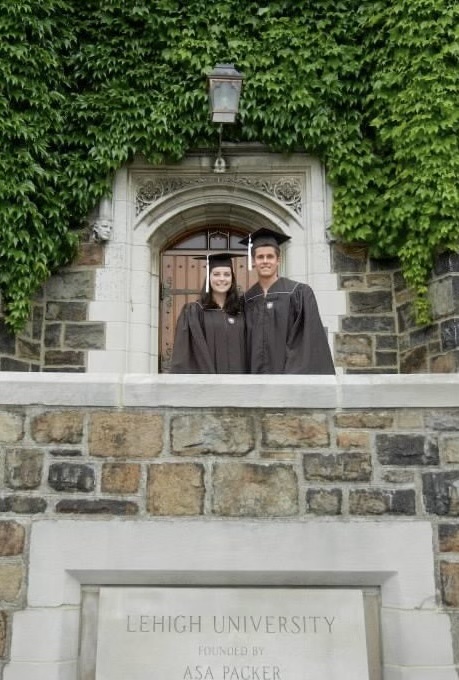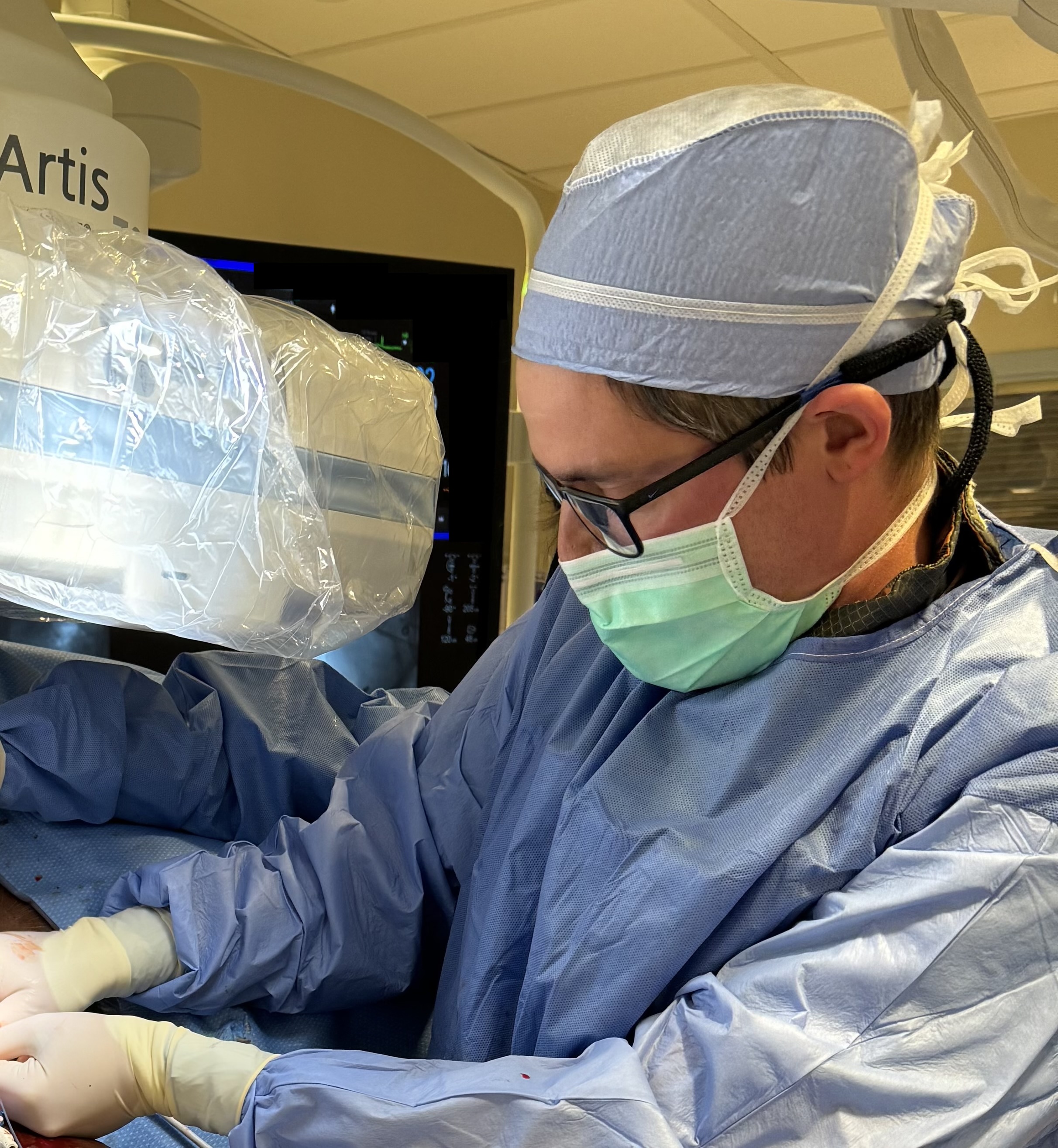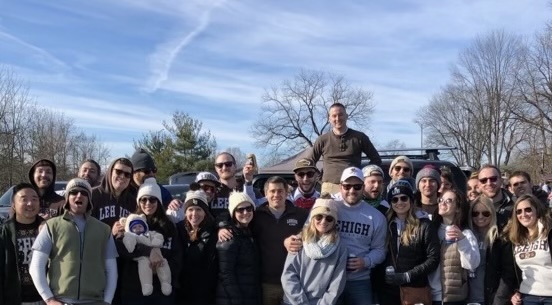BioE Alumni Spotlight: Dan DePietro ‘13
 Name:
Name:
Dan DePietro
Where are you from/where is your hometown?
Farmingdale, New York (Long Island)
Where do you currently live and work? What is your current company, job title, and job description?
I currently live in Philadelphia, PA and I work at the Hospital of the University of Pennsylvania as an Interventional Radiologist (a doctor who primarily performs image-guided, minimally-invasive procedures). My official title is Assistant Professor of Clinical Radiology within the Division of Interventional Radiology, Department of Radiology.
While I perform procedures throughout the body as an Interventional Radiologist, some areas my practice focuses include treating primary and metastatic cancer in the liver and performing procedures related to the bile ducts, gallbladder, and gastrointestinal tract.
I also hold a teaching position within the Perelman School of Medicine at Penn, where I am the co-course director and director of radiology curriculum within the 1st year Medical Student Anatomy Course.
What degree(s) did you get from Lehigh BioE, and what year(s) did you graduate?
I have a B.S. in bioengineering and graduated in 2013. My concentration was in what is now the equivalent of the “biomechanics and biomaterials” track.
What other degrees do you have, from what institutions, and what year(s) did you graduate?
I attended medical school at the Perelman School of Medicine at the University of Pennsylvania immediately after graduating from Lehigh and graduated with my MD in 2017.
Thinking back, why did you choose to come to Lehigh University? What is a favorite memory surrounding Lehigh University in general and being on campus?
Lehigh had everything I was looking for in a school – a great engineering program and an externship at a local hospital (St. Luke’s) that would allow me to explore my interest in medicine. It also came highly recommended from some Lehigh students I knew who were already there and loving it. The beautiful campus and location a few hours from home were an added bonus.
There are too many great Lehigh memories to count, but one that has always stuck out as when I knew I had made the right choice in coming to Lehigh was on my first day of classes as I walked through the fall club expo on the UC front lawn. Seeing so many excited students involved in different interest groups, clubs, and programs doing amazing things was really inspiring and very different than what I had experienced in high school. I knew I had found a place I could thrive at. Some of the groups I signed up for that day, like Engineers Without Borders, became a large part of my time at Lehigh.


Thinking back to when you decided to pursue bioengineering, why did you choose this major? How has studying bioengineering served you in your career?
Bioengineering was a perfect fit for my interests heading into Lehigh – I loved biology, had a growing interest in medicine, a desire to understand how and why things worked the way they did, and enjoyed hands on projects in which I could design or create something and implement an idea. I was able to do all of that within the bioengineering major.
Luckily, I still get to do a lot of that and apply my bioengineering skillset as an Interventional Radiologist. When doing procedures, I use a number of different medical devices – wires, catheters, balloons, stents, different drug delivery agents…the list goes on. These devices and equipment all involved an enormous amount of engineering to make possible. It is not uncommon that I have to think about the radial force that a stent I am deploying exhibits – a force I would have calculated myself in one of my bioengineering classes (although I don’t think I could do that math anymore).
As a field on the cutting edge of medical technology, I get to work with companies developing new products and evaluating them as an end-user, something my bioengineering background has prepared me well for. Additionally, the creative, problem-solving skillet that engineers develop has allowed me to approach difficult procedures in a unique way that ultimately benefits patients.
Share a good memory from your time in Lehigh BioE:
I remember my class really bonding through our shared experience within Dr. Susan Perry’s integrated biomechanics lab. Whether it was the opportunity to practice hands-on bioengineering, the trips to mountaintop campus, or the struggle of keeping our cell lines alive as we performed experiments, we had a blast within Dr. Perry’s course and learned a ton. We came out of the lab a closer knit group that would continue to study together until we graduated.
Share your career/life path with us! Since graduating from Lehigh BioE, what have you been up to? What are some personal and professional accomplishments, successes, and wins from your life?
I started medical school in Philadelphia a few months after graduating Lehigh and haven’t left Philly since. I knew I wanted to practice a medical specialty that was hands-on in which I could apply the engineering skillset I developed at Lehigh, and I quickly found that within interventional radiology. Throughout medical school and my subsequent residency I developed interests in both clinical research and medical education, and have had the opportunity to publish a number of research studies and other work in both of these areas.
Between medical school and residency I got married to another Lehigh grad, Kate Cleary. We had met and started dating in our sophomore year at Lehigh. After graduating together in 2013, she stayed at Lehigh to complete a masters degree in environmental science while I started medical school. She joined me in Philadelphia after she graduated and we got married in 2017.
My residency was 6 years long and consisted of training in surgery, diagnostic radiology, and interventional radiology. During my training I continued to perform clinical research, being honored as a research fellow within interventional radiology, and had the opportunity to pursue a medical education fellowship within the medical school. I also served as our chief resident in my final year of training.
This all culminated in obtaining my dream job as an attending interventional radiologist at Penn, where I have the unique opportunity to both treat patients and perform unique and innovate interventions, teach medical students and residents, and perform cutting edge research.

Share a fun fact (or two, or three) about yourself!
Looking back, I didn’t plan very well for college – Lehigh was the only school I applied to! Good thing I got in. Granted, I did apply early decision, and knew that if I didn’t get into Lehigh I would have about 48 hours to throw applications together for other schools before their deadlines. I planned a bit better when I applied to medical school…
What words of wisdom do you have for current or future students of bioengineering at Lehigh?
I remember getting the below advice when I was at Lehigh, and not really believing it, but it couldn’t have been more spot on…someone had told me that “now is the time to try things, screw them up, and learn from it before it really matters”.
What they meant was that Lehigh provides a safe, protected environment for personal growth, and therefore now is the time to explore your interests, try new things, challenge yourself, and potentially fail. You may find a passion for something you were previously unaware of and the lessons you learn through these experiences will help you immensely in your post-graduate career.
Anything else you would like to share:
Two of my most enjoyable and valuable experiences at Lehigh were Engineers Without Borders (EWB) and the TRAC writing fellows program. EWB is a great organization doing amazing work abroad and in the local community – a lot of my undergraduate experience was shaped by my involvement with EWB. The TRAC writing fellows program is another amazing group of individuals to work alongside and I learned so much through this program that I still utilize to this day.
If you are an alumni of Lehigh's Bioengineering department and are interested in being spotlighted, please reach out to our graduate team: inbioe@lehigh.edu.
